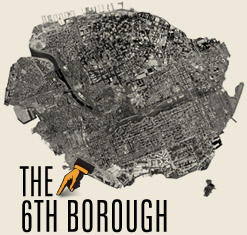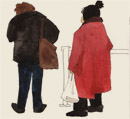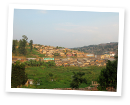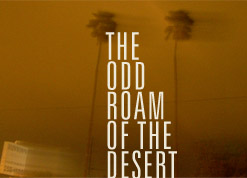Dispatch from
Kigali, Rwanda
by KATE MEYER
In the heart of a country known for fertile ground and verdant landscapes, there is a city set on a cluster of rolling hills, where neighborhoods rise up from the earth’s plane to face one another.

All photographs by Matt Rodigheri
The social arrangement on these hills is unremarkable: affluence settled at their tops and indigence at their bases. But whereas in other cities the privileged may have been perched above their city’s expanse with smug notions of surveillance or possession, in this place there is no long view, no uninterrupted panorama of the land spread at your feet. In Kigali the view is that of the community in front of, not below you, and the inhabitants of this place quietly observe each other across the small valleys separating them.
Windows grow larger and more frequent with altitude, but Kigali does not have the perverse feeling of voyeurism or exhibitionism found in cities with adjacent high-rises, where a window into a stranger’s life is welcomed with near fetish interest. Rwandans are notably private, modest people. And yet, these hillside communities beg their inhabitants to peer across the spaces between them, to consider the rest of the city, however warily.
In between these neighborhoods, at the bottom of the hills, there is little — narrow fields, connecting roads, small streams. It seems this is a city that does not readily regard the depths of its geography, nor, one could say, its history.
Much has been made of Kigali’s red dirt, rife with potential, convenient for metaphor.
It is so striking, so rich — and still hiding bodies.
And though mass graves are still found, these days an empty plot is just as likely to be the site of a new bank or planned-housing project. One such stable of posh track homes, a side venture by the army’s chief of staff, tenders a poignant example of the community’s determined efforts to move past the ghosts that have defined the city — ghosts of a protracted tragedy the world wouldn’t stop but won’t let it forget.
Government officials on the clock and off have been hungrily trying to make up for lost time, attempting to hurdle the trials of development and transform the country from an agrarian economy to a technology hub for east and central Africa, and transform the country’s international image along the way.
In a shift away from French aid and toward American investment, President Paul Kagame has been shuttling in urban planners from Colorado to redesign the city, pushing for English to be used more in business and courting money with promises of stability and ingenuity.
And as he encourages a clean break from the past and a clear view of the future, Kagame’s pains can be seen in Kigali’s regimented city center.
Far more orderly than other African capitals, which charm with chaos, Kigali is disarmingly metered, though self-consciously so. Its paved streets are tidy, its people are polite, motorcycle taxis — certain death in most large African cities — are strictly monitored and unusually professional.
With its open invitation to investors, Kigali also asks that you tactfully refrain from mentioning the horror in its past. It is a tacit, delicate request everyone wishes they could abide, but the country’s past won’t stay as neatly bound as the country might like.
In Democratic Republic of Congo and Burundi, former members of the Interahamwe give a pressing reminder of a very present, still unresolved strife just barely over the border. And in the city, soccer players train on the same team with those whose family members murdered their own, or vice versa. In the city, children born of rape turn 14, old enough to understand a part of what has happened, old enough to hold a grudge. In the city, a lost generation’s children, orphaned by murder or prison, are entering the work force, having children of their own, looking out their own windows at the Kigali opposite them.
Kagame would have you believe that the capital has recovered, that there is “one Rwanda” now, and perhaps there is.
Yet geography betrays this new conception of Kigali. No urban planner can change the land’s fundamental layout, to close the spaces separating the people of Kigali.
Recent designs have advocated better use of the valley land, to maximize the resources nestled between the facing neighborhoods to benefit all.
Maybe the city’s fissures are indeed shrinking — surely the people of Kigali are willing. Maybe they are not waiting for the other shoe to drop.
But if they are not waiting, they are most certainly watching.










